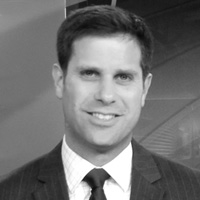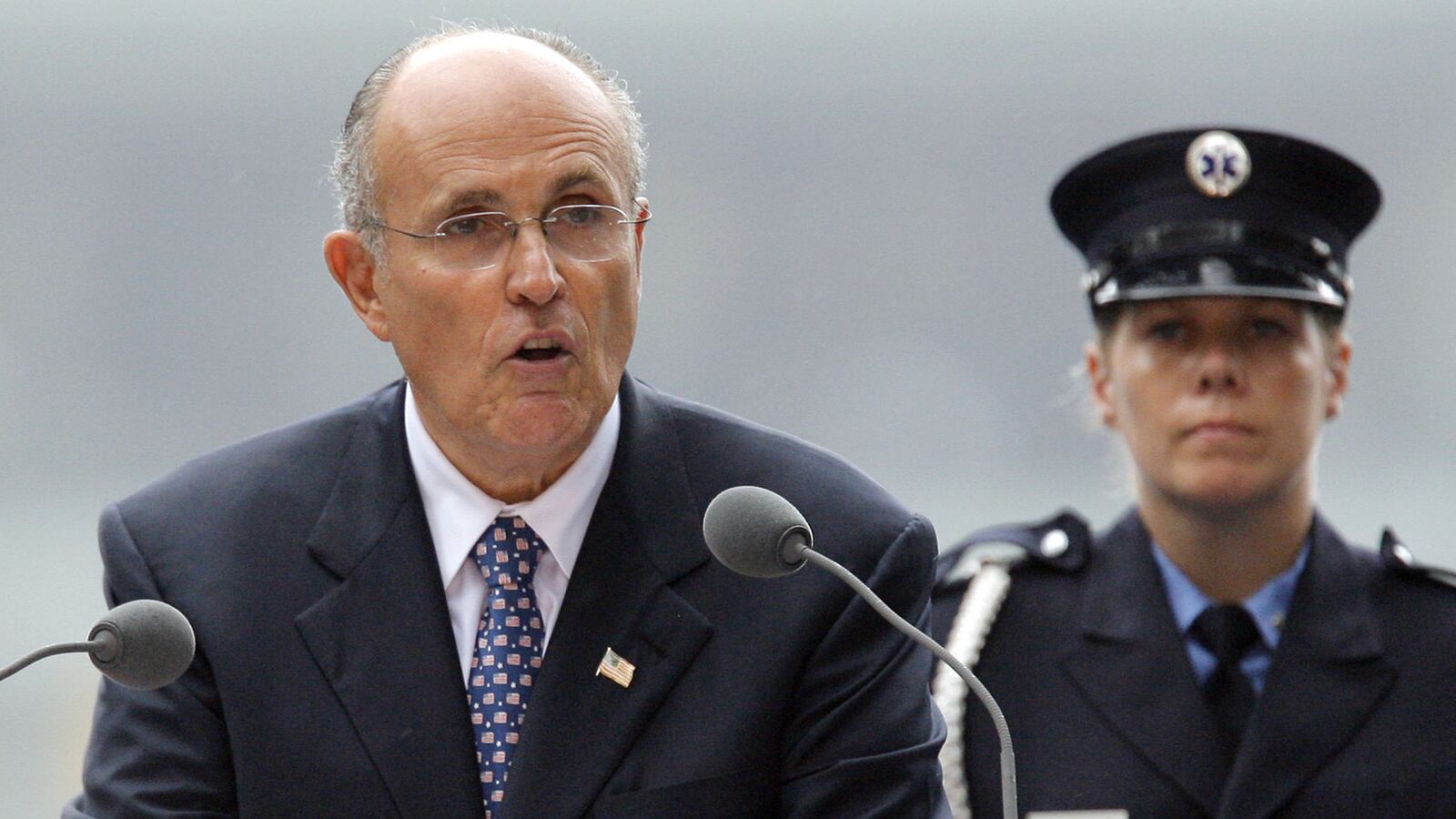We followed him. We listened to him, even those who had despised him, because at that broken time we needed him. Three hundred and forty-three firefighters were gone, and he told us the FDNY “was stronger than we were before.”
Rudy Giuliani admits now that he was sometimes “bluffing.”
“Maybe I wasn’t sure we were going to get through it,” the mayor told me on the eve of this year's 9/11 anniversary. “People ask me, ‘If you met Churchill, what would you ask him?' And I would ask him, ‘How often were you bluffing?’”
Was Giuliani bluffing on September 11, 2001?
“There were times, sure, sure. When I would hear of people dying and I’d want to cry—and I would just stop myself.”
A few hours after our interview, Giuliani was scheduled to be on national television again, just as he is every year at this time. He is among the enduring symbols of remembrance, along with the firefighter in dress blues who peals the bell; the blue lights beamed skyward; the children, at least 13 years old now, holding pictures of lost loved ones. In the day’s shorthand, Giuliani is there to epitomize spirit and resolve and leadership.
But, speaking by phone from his Midtown offices, the former mayor concedes that even as he steeled us in those days of throat-burning dust, he, too, was barely holding it together. Maybe we shouldn’t be surprised. Mark Twain famously said courage is resistance to fear, mastery of fear—not absence of fear.
In retrospect, Giuliani’s doubt oozed during his first news conference—four hours or so after the North Tower collapsed. A reporter asked him how many were dead.
“The number of casualties will be more than any of us can bear, ultimately,” he said then.
“Maybe it was even a personal statement—the number was too much for me to bear at that point,” he now says. “Because I had been thinking, from the time that I heard the 12,000 and then the 6,000 and then I was thinking—how do we deal with that many people dying? You know. And I knew it was going to be hundreds and hundreds of police officers and firefighters." (Ultimately, there were 2,977 immediate victims from the attacks).
His famous quote—“the number of casualties will be more than any of us can bear, ultimately”—is on a wall of the newly opened National September 11 Memorial and Museum. Giuliani will be there Thursday, as the ceremony finally shifts to a completed site, open to the public. The museum is sunk deep below street level at the tower’s original foundation.
There are other Giuliani quotes there and several of his effects: a crushed mult box, where reporters were to plug in microphones in a mayoral press conference that never happened; a copy of his schedule for that day, updated with “CANCELED DUE TO TERRORIST ATTACK.”
Some say these momentos aren’t enough to reflect a man so linked to the nation’s response to 9/11. There is word that this done deliberately, to depoliticize the exhibits. After a recent tour, I concluded those who feel he is minimized may have a point. There are several quotes attributed to the mayor, but the only other artifact is an urn that India's minister of defense and external affairs gave to Giuliani.
Then again, the story of Sept. 11 is told through millions of other narratives.
The museum also says it plans to rotate through the museum other effects, like a satellite phone Giuliani may have used to call then-Vice President Dick Cheney. They are searching for more ways to capture his role.
Asked about how Giuliani is treated, Jan S. Ramirez, chief curator of the 9/11 Memorial and Museum, praised his “exceptional leadership,” but added: “What we tried to do in the end was to make the public the main actor in the way that we told the story, rather than our elected officials and government representatives.”
She added: “Although you have to begin with the horror, I think you have to change your perspective to let people understand that horrible things do happen in the world, but you still have agency to make a difference.”
Asked if he feels he merits greater attention at the memorial, Giuliani said: “Oh, I think that’s up to them. It’s about many, many people and I’ve gotten so much attention for everything that happened. Knighted by the Queen—honorary knighthood by the Queen, I should say. The Medal of Freedom from Mrs. Ronald Reagan. All of that. I used to be embarrassed by a lot of that because I rested on the shoulders of giants, who did all the hard work.”
Giuliani can be counted upon for endorsements of fellow GOP candidates, but is no longer seen as having political ambitions. He didn’t win a single state in his 2008 presidential bid, and is rarely mentioned as a Republican candidate for state office. Instead, he’s a partner in an eponymous law firm, supplementing it with commercials for the Indian Point nuclear power plant and the LifeLock identity theft prevention system. He also is a reliable pundit on security matters.
As we talked, President Obama was about to speak to the nation on ISIS, which some see as an even greater threat than al Qaeda.
“I think it’s hard to know if it’s worse,” Giuliani said. “ISIS is something we’re developing our information about. We knew about al Qaeda for a much longer period of time, even when September 11 hit.”
Surprisingly, he doesn’t criticize Obama.
“Given how vicious they are, they appear to be extremely dangerous. Just how big they are, just how much their reach is, I can’t assess that for you. Only the president can really assess that.”
Giuliani's time in office after the attacks is still admired in much of the nation—but only grudgingly by many of his former constituents in New York.
Arguably, Giuliani can be faulted for some things he did, or didn't do, after the attacks; perhaps he should have demanded more caution in the clean-up, in which workers inhaled disturbing amounts of toxic dust. More glaringly, he attempted to extend his term in office, even as he preached that the attack was directed at American democracy and rule of law.
Still, New Yorkers’ lingering criticism of Giuliani is too often unwarranted.
Recently, I listened to the entire frantic news conference from that Sept. 11, 2001 afternoon. Dust faintly coats his dark suit. A man behind him on the dais has a dust mask slung over his neck. Giuliani tells the cameras the number of casualties may be more “than any of us can bear.” But to my ear, it was another offhand remark that’s more indelible. I believe it saved lives and reaffirmed our civility, even amid the terror.
“Just one other thing that I would like to say,” Giuliani said. “A situation like this, a tragedy like this, instills lots of feelings of anger and hatred and I'd ask the people of this city not to have those feelings right now, or ever. And the reality is that hatred and insanity and prejudice caused this situation, probably. And we have a lot of people in this city of all different backgrounds and all diverse religions. And they’re not responsible for this. Whoever is responsible for this came from outside the City of New York.”
In our conversation Wednesday, Giuliani told me he still has that suit he wore that day hanging in his closet. He also has Churchill’s memoirs that he read that night. He says he may yet donate them both for public viewing. Then again, there may be some things he keeps for himself.





